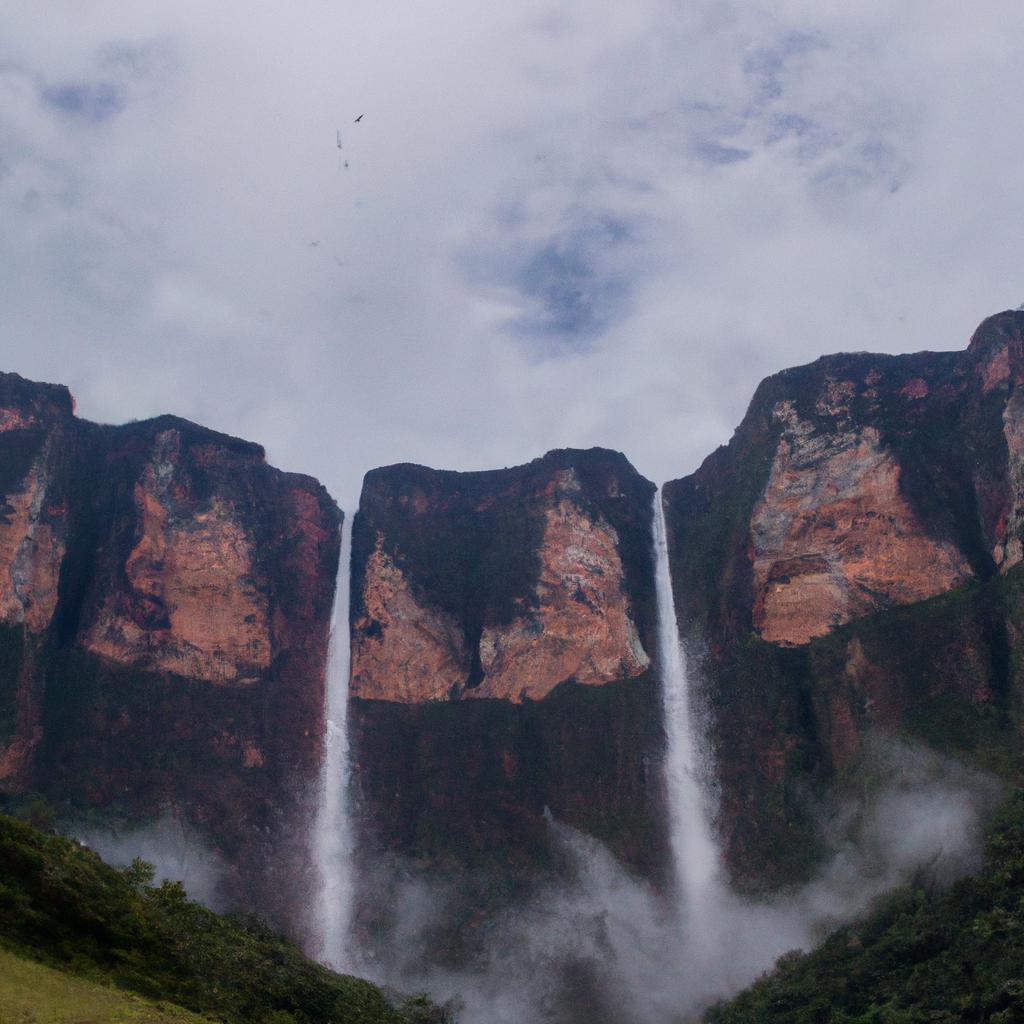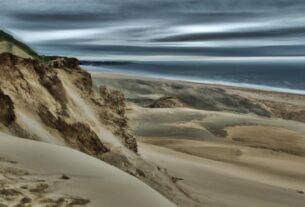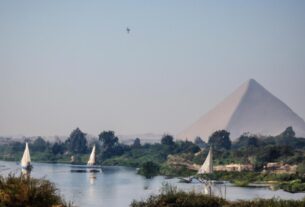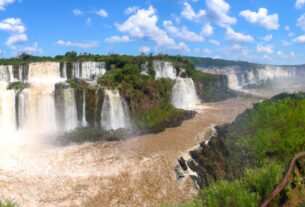Angel Falls, located in Venezuela’s Canaima National Park, stands as a breathtaking testament to nature’s grandeur. Its towering height and awe-inspiring beauty have made it an irresistible destination for nature lovers and adventure seekers from around the world. Embark on a journey with us as we delve into the history, geography, features, and conservation efforts surrounding Angel Falls.
A Natural Marvel amidst Unspoiled Wilderness
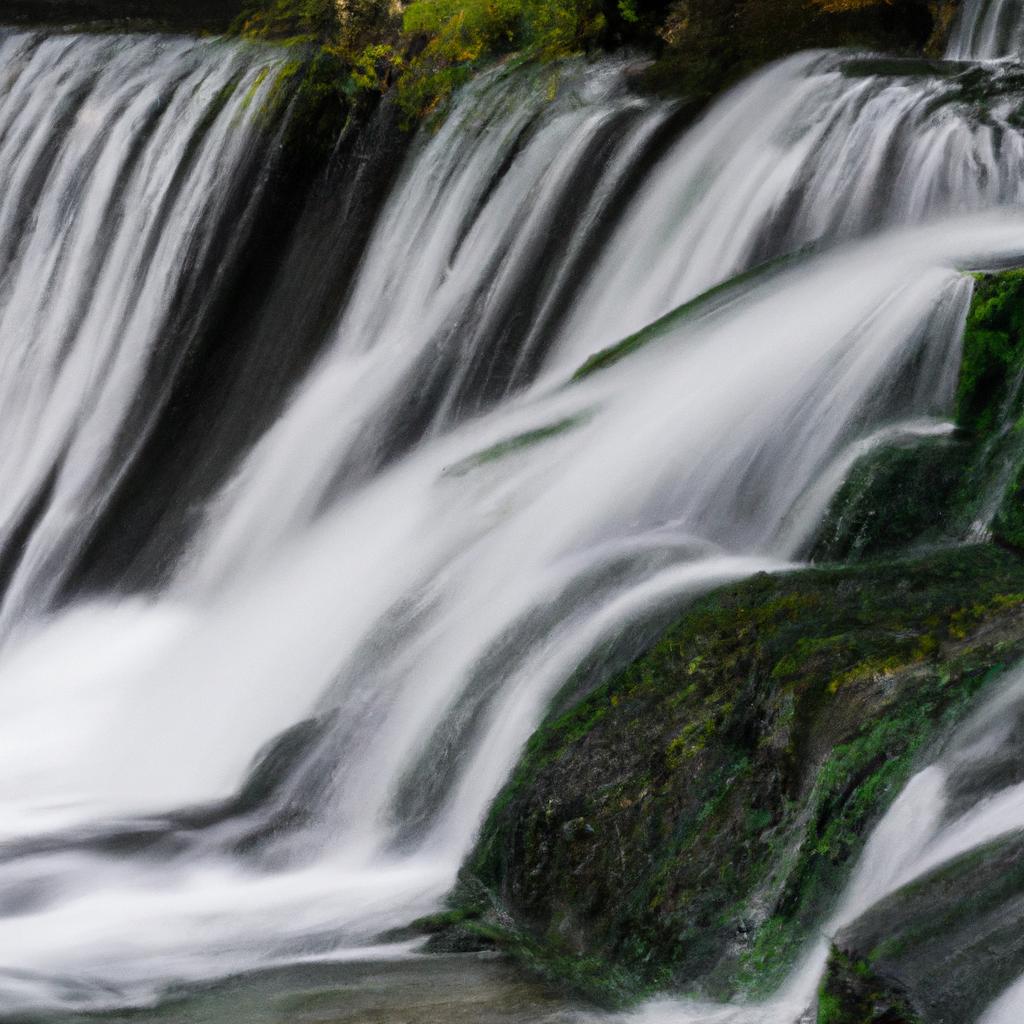
Angel Falls is nestled within the heart of Canaima National Park, a UNESCO World Heritage Site. This natural wonder is situated in the southeastern part of the park, amidst the captivating landscapes of the Gran Sabana region. Stretching across approximately 10,820 square miles, the Gran Sabana boasts dramatic vistas, unique flora, and diverse wildlife.
Formed by the Carrao River, Angel Falls cascades over the edge of the Auyan-Tepui plateau, creating an uninterrupted plunge of 3,212 feet. Its sheer magnificence earns it the title of the tallest waterfall in the world, with a width of 500 feet. Surrounded by abundant rainforests and sprawling savannas, the falls provide a sanctuary for over 300 bird species, including the majestic harpy eagle, as well as a myriad of other wildlife such as jaguars, pumas, ocelots, and giant anteaters. The park also serves as a home to indigenous tribes like the Pemon people, who have resided here for millennia.
A Tale of Discovery and Indigenous Beliefs
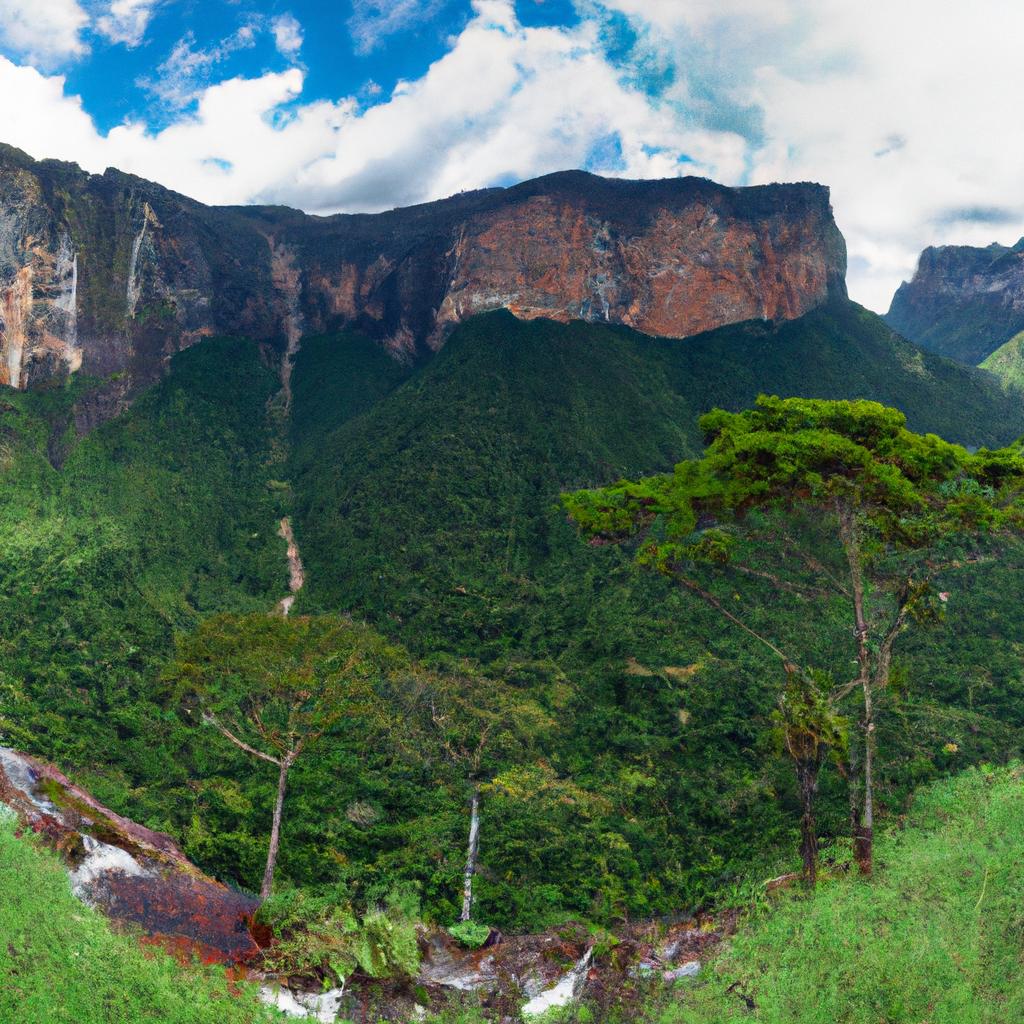
The story of Angel Falls began in 1933, when American aviator Jimmie Angel stumbled upon this natural gem during his search for gold. Angel’s subsequent return, accompanied by his wife and two companions, marked the first-ever human presence atop the falls. In honor of Angel’s extraordinary discovery, the falls were christened with his name, cementing them as a prominent landmark in Venezuela.
Yet, long before Angel’s arrival, the falls were already known to the indigenous Pemon people. Revering the falls as a sacred site, the Pemon attributed spiritual significance to Kerepakupai Meru, a powerful deity believed to reside within the falls. Rituals and ceremonies honoring this spirit were performed by the Pemon community, underscoring the deep spiritual connection they held with Angel Falls.
A Symphony of Wonders and Attractions
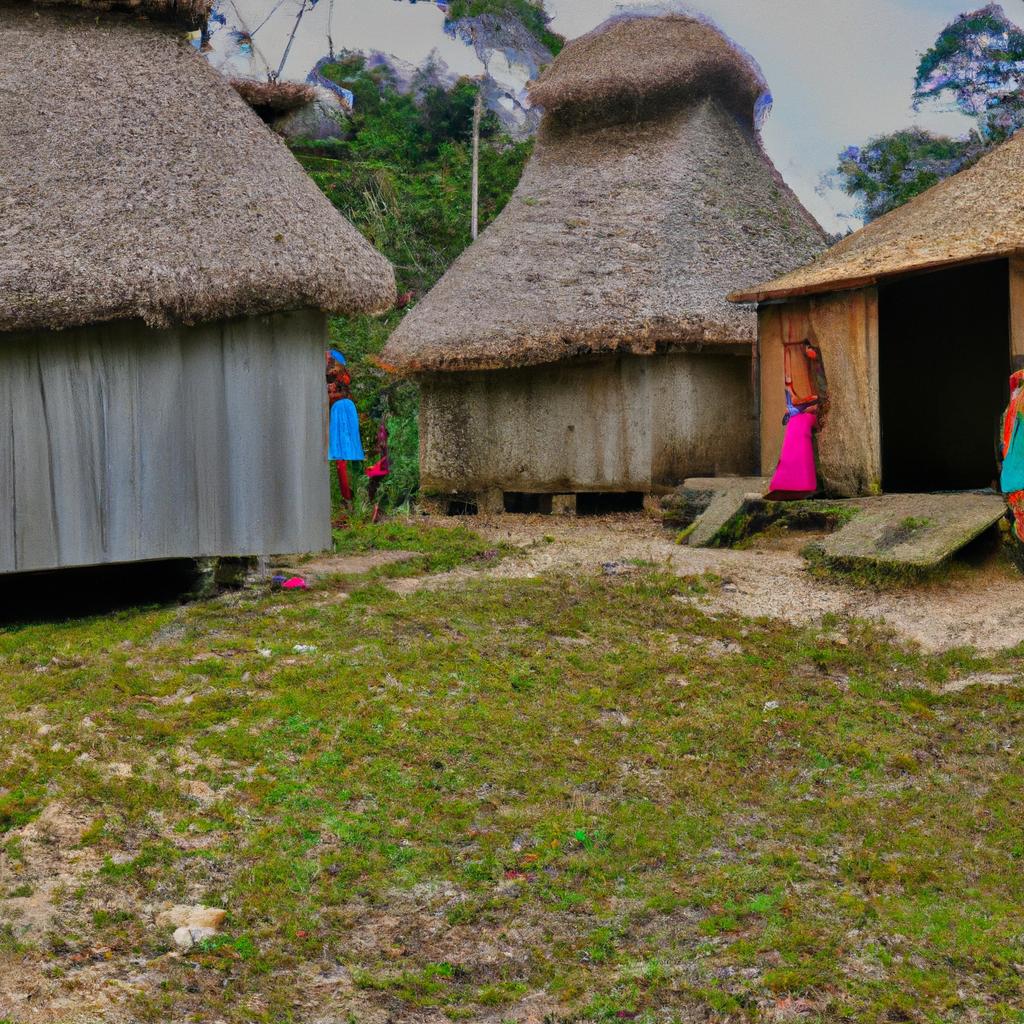
Angel Falls captivates visitors not only with its mesmerizing beauty but also with its unique features. The uninterrupted descent of the falls distinguishes it as an unparalleled spectacle. As visitors explore the area, they are greeted by lush rainforests and sprawling savannas, creating a diverse tapestry of natural wonders.
The Canaima Lagoon, nestled at the base of the falls, stands as one of the area’s most popular attractions. Surrounded by towering cliffs, this enchanting oasis teems with aquatic wildlife, including fish, turtles, and caimans. Boat tours allow visitors to behold the falls from a fresh perspective and explore the rich surroundings.
Wildlife enthusiasts will find themselves amidst a vibrant ecosystem, encountering monkeys, toucans, and parrots. Guided tours provide opportunities to traverse the rainforest, observing these creatures in their natural habitat. Cultural experiences with indigenous communities, such as the Pemon, offer insights into their rich history and traditions.
Embracing Sustainable Tourism and Conservation
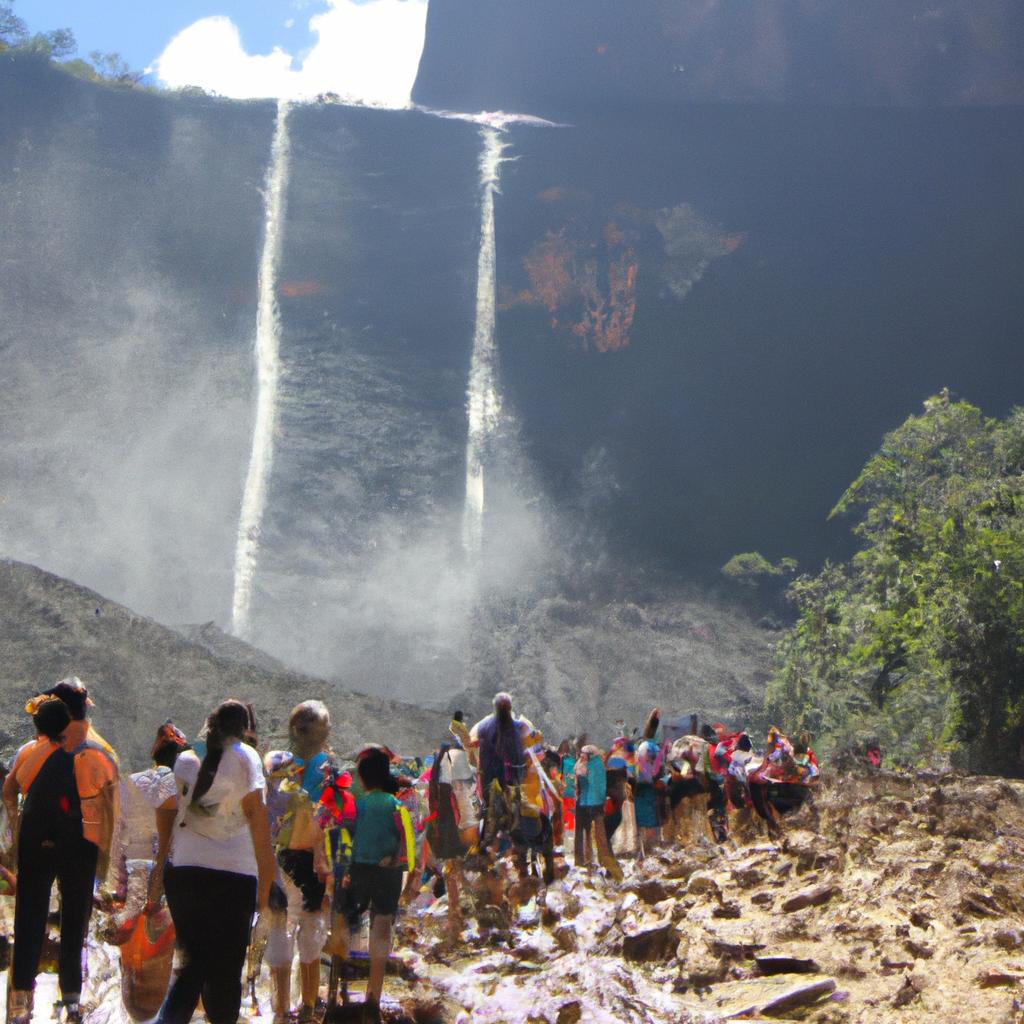
Angel Falls has emerged as a global tourist destination, alluring visitors from far and wide. Activities such as hiking, camping, birdwatching, and wildlife spotting provide unforgettable experiences. The rainy season, spanning from May to November, showcases the falls in their most resplendent form. Adventurers can immerse themselves in the misty ambiance by embarking on a boat ride up the Carrao River, followed by a hike to the falls.
However, the influx of tourists necessitates efforts to safeguard the pristine environment surrounding Angel Falls. Canaima National Park authorities have implemented stringent conservation measures to preserve the park’s diverse ecosystem. These include visitor quotas, eco-tourism promotion, and robust waste management guidelines.
Collaboration with the indigenous Pemon people plays a crucial role in ensuring that tourism does not compromise their traditional way of life. Given their profound spiritual connection to the land, the Pemon community actively participates in safeguarding the natural environment encompassing Angel Falls.
Preserving Splendor for Future Generations
In conclusion, Angel Falls stands as an iconic natural wonder that captivates the hearts of travelers worldwide. Its significance extends beyond the realm of tourism, deeply intertwined with Venezuela’s natural heritage. The ongoing conservation efforts surrounding Angel Falls and its surrounding ecosystem remain essential in preserving the park’s unique biodiversity. As visitors bear witness to this wondrous spectacle, they are inspired to embrace responsible tourism and support conservation endeavors. Experience the unrivaled beauty of Angel Falls firsthand, cherishing nature’s magnificence while recognizing our role in safeguarding it for future generations.
Join us at TooLacks as we encourage you to embark on an unforgettable adventure to Angel Falls, immersing yourself in the splendor of this extraordinary natural wonder while cherishing the importance of responsible tourism and conservation efforts.
